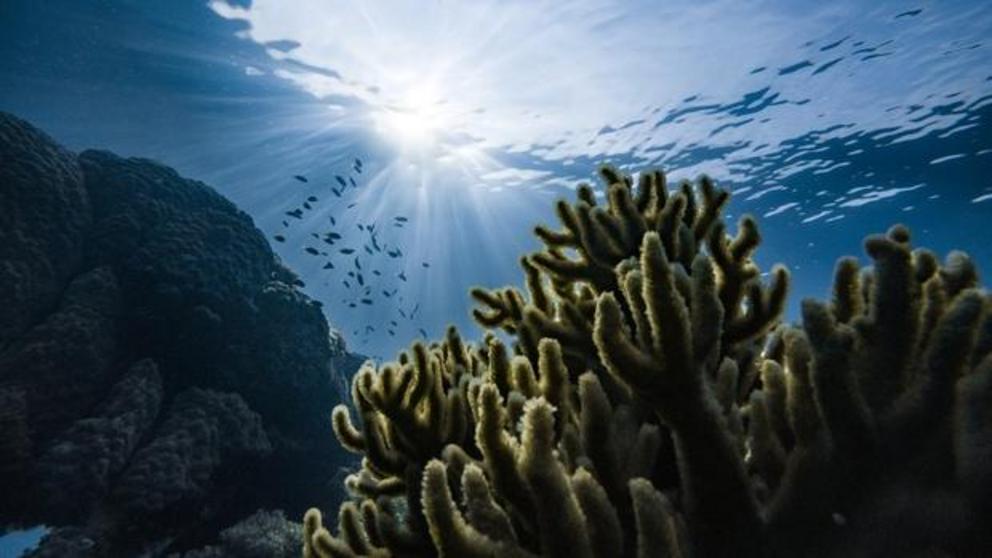Italy's first known coral reef has been discovered
Congratulations Italy! Scientists just discovered a new coral reef in the Adriatic Sea, near the town of Monopoli in Puglia. Not only is it the first coral reef known to be off the Italian coast (at least in modern time), it's also a rather unusual one.
Stretching for at least 2.5 kilometres (about 1.5 miles), the reef has more subtle colouring than you might expect – that's because it's a mesophotic coral reef, or one that's exposed to lower levels of light than normal.
Mesophotic reefs like these are very rare, as surviving and growing without a lot of light from above is a tough ask. This particular reef is around 35-50 metres (115-164 feet) below the surface, at which point the sunlight is definitely starting to fade.
"In the early 1990s I worked as a marine biologist in the Maldives," says lead researcher Giuseppe Corriero, from the University of Bari Aldo Moro in Italy. "But I never thought I'd find a coral reef, 30 years later, a stone's throw from my house."
While the Mediterranean was once home to many coral reefs, the vast majority have now died off, with only remnants remaining. The researchers think more reefs like this one might be waiting to be found, however.
Unlike more well known coral reefs, such as the Great Barrier Reef, mesophotic reefs like this one are built up from "non-symbiotic scleractinians" – stony corals that feed on organic matter floating around in the water.
It means there's no colourful, symbiotic algae here, feeding on sunlight and converting it into energy that the corals in the Pacific then make use of.
Two scleractinians in particular make up the framework of the newly found coral reef: Phyllangia americana mouchezii and Polycyathus muellerae, which aren't normally associated with building reefs of this type.
The reef is unusually thick in some areas as well, the scientists say – up to 2 metres (6.5 feet) in certain places – and this all makes the newly identified reef a fascinating one for biologists.
Phyllangia americana mouchezii (left, A,B) and Polycyathus muellerae (right, C,D). (Corriero et al, Scientific Reports, 2019)
Now the team behind the discovery is now planning further dives and further research to see just how far the coral reef extends. There may yet be many more discoveries to be made under the water.
The finding could well offer some useful insights into how corals can survive in difficult circumstances too, and that in turn would benefit research into coral reef conservation – with reefs around the world under threat from warming temperatures and human pollution, these fantastic natural ecosystems need all the help we can give them.
In the meantime the researchers have called for official protection for the area. Work goes on to analyse this new discovery and to see just how many other reefs like this might be lurking in the Adriatic Sea and further out in the Mediterranean.
"Overall, the studied reef can be considered a unique environment, to be included in the wide and diversified category of Mediterranean bioconstructions," write the researchers in their published paper.
The research has been published in Scientific Reports.

